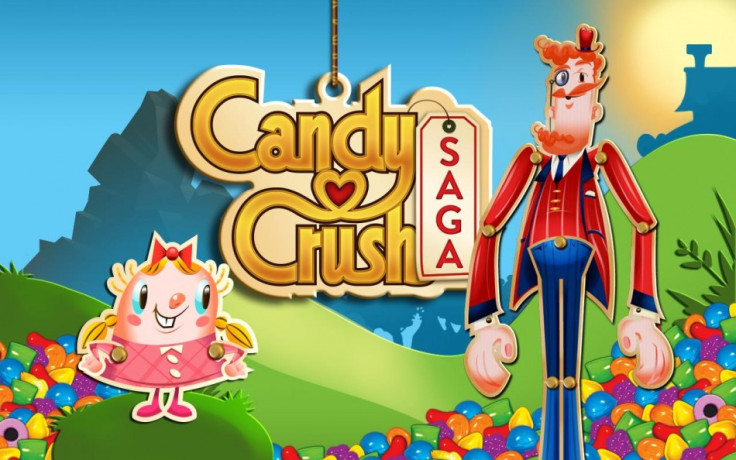Freemium, In-App Purchases and the Psychology of Gaming
The 'freemium genie' cannot be put back in the bottle, says video game consultant and author Nicholas Lovell, but he insists there is still money to be made if developers understand the psychology of gaming and human nature.

Speaking at the Wall Street Journal's pop-up Tech Cafe in East London, Lovell explains that if developers are clever, they can create free games that are both hugely popular and profitable, without resorting to forcing players to part with their cash.
Candy Crush Saga generates £500,000 every day through in-app purchases, Lovell said, and although 70% of players who have completed the game to level 400 haven't paid a penny, it, and similar freemium games, will still attract players willing to spend a fortune on them.
"I have clients who have at least 20 people who spend ten grand on a single game in three or four months and I've heard of some whales from Chinese companies who have each spent £100,000 in a game," Lovell says.
"My favourite example of a whale is in World of Tanks where there is, apparently, a Russian oligarch who has bodyguards in the game. He pays a team of five people full time to play, so that when he comes in he drives a tank and they make sure he doesn't die."
But while these so-called superfans will spend vast amounts of money regardless, ethically encouraging casual gamers to part with their cash where they haven't done before is more difficult.
Protecting children
Following a number of cases where children have unwittingly spent hundreds or even thousands of pounds of their parents' money buying in-app purchases on devices like the iPad, the Office of Fair Trading has proposed a set of guidelines to both protect children and their parents' finances, as well as inform consumers about how in-app purchase systems work.
Lovell said: "The OFT [guidelines are] to protect the involvement of children and that I am all in favour of. I'm also all in favour of in-app purchases (IAP) but also of IAP being ethical and sustainable.
"I don't think the in-app purchase world has been a wild west, it's nowhere near as bad as the ringtone world was a while back. But there's a problem whereby for 15 minutes after the parent has entered the password, in-app purchases can be made without entering it again."
Lovell highlights Disney's Shrek game as a particularly bad example of an app that exploits this 15-minute timeframe.
"During the 15 minute window your children are encouraged to spend 6.99 - no currency symbol - of real-world money, and if you haven't changed your default settings you won't need to enter your password again and that's just wrong.
"I actually think Apple has the primary responsibility for that, because that would be easy to just change the default."
But there are ethical ways to earn good money through offering games with in-app purchases, and Lovell explains how understanding psychological behaviour helps to achieve this.
How to make people pay
When switching a game from having a set price buyers pay once, to one which is free to download then offers in-app purchases, Lovell claims anywhere between 1% and 20% of gamers can be "converted from players to payers".
"In games I try to have a no-brainer, a product that is obviously so good value you would be crazy not to buy it. The classic example of that is a thing called a coin-doubler. So if the most important thing in this game is to collect coins, then you might sell those in a store.
"You send somebody to the store and for 69p they can buy 100 coins, but say for the same price I could buy a device that doubles the number of coins I get forever - when you compare those two things side-by-side it's pretty clear to see which is better value.
"The job of that thing is to convert people from being players to payers, because once people have shifted into that mindset of 'this product is so good, I want to spend money' - however little [they spend] they have become customers, and that is an important mental shift for them."
Social media and gaming
Where Farmville was widely criticised for spamming friends of players with messages encouraging them to play, Lovell says the way Candy Crush works is much more effective, by instead persuading players to help each other out, rather than do the developer's dirty work for them and bombard friends with requests to join in.
The difference, Lovell explains, is that where Farmville's messages were clearly for the benefit of developers Zynga, Candy Crush tells players "you need to share this because it benefits your friends."
Players can only play five levels at a time until they run out of 'hearts', meaning they must wait before playing again unless they buy more - but during this time they can give hearts to their friends.
"After a while of helping everyone else," Lovell says: "You think 'I don't mind asking them for help now because I've shared the love, it's my turn [to ask for help and be rewarded]'."
This combination of helping friends, improving their view of you and being encouraged to spend money only on items that seem like a good deal - but aren't absolutely necessary to complete the game - is how Lovell believes the freemium model can succeed without being the wild west it at first appears.
© Copyright IBTimes 2025. All rights reserved.






















